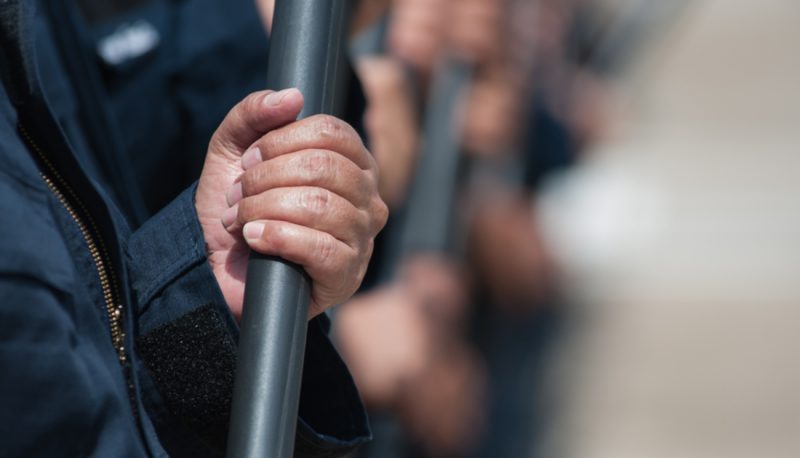“Confirmed Judges, Confirmed Fears” is a blog series documenting the harmful impact of President Trump’s judges on Americans’ rights and liberties. Cases in the series can be found by issue and by judge at this link.
Trump Third Circuit Judge Peter Phipps penned a majority opinion that affirmed the exclusion of expert evidence that could have helped prove improper brutality and misconduct by police. The August 2020 case was Wood v. Showers.
Thomas Wood filed an excessive force case against Pennsylvania state troopers for “bear hugging” him and taking him to the ground after he, a diabetic who was in a suicidal state, had overdosed on insulin in the middle of the night and resisted getting into an ambulance. The result was a broken ankle and multiple surgeries.
To help prove his case, Wood wanted to introduce testimony of an expert criminologist who would have explained, based on International Association of Chiefs of Police (IACP) and National Institute of Justice (NIJ) standards, that the troopers “ignored widely accepted p0lice procedures” in such a non-criminal medical-assist situation by “using physical force before attempting to de-escalate the situation.” The expert would also have testified concerning the application of standards set by the Supreme Court on excessive force claims to this case. The trial judge granted the troopers’ motion to prevent the expert from testifying at all, based in part on the judge’s own research concerning IACP standards. The jury found against Wood and he appealed, contending that he should get a new trial in which the expert would be allowed to testify.
On appeal, all the judges agreed that the expert should not have been allowed to testify to what would have been a legal conclusion on the application of Supreme Court excessive force standards to this case. In addition, however, Trump judge Phipps wrote a 2-1 decision upholding the exclusion of the expert from testifying about how the troopers’ conduct deviated significantly from accepted police procedures. Phipps maintained that the trial judge had the discretion to conduct his own research on the issue and to exclude the expert’s testimony, noting that the expert had not sufficiently supported the “reliability” of the standards of the IACP and NIJ.
Judge Midge Rendell firmly dissented. Under the law, she explained, expert testimony should be admitted as long as there is a “logical basis” for it and without imposing “rigorous requirements.” The attempted use of IACP and NIJ model rules and procedures to conclude the troopers’ behavior was inconsistent with widely accepted procedure, Judge Rendell went on, clearly satisfied that standard. Issues about the credibility of IACP and NIJ standards could have been explored on cross-examination and were ultimately up to the jury, she went on. The trial court “abused its discretion” when the judge conducted his own internet research without notifying the parties and used it to conclude that the expert should have relied on Pennsylvania standards rather than the IACP, she continued. This conclusion “invaded the province of the jury,” Judge Rendell concluded, which should have been allowed to consider the expert’s testimony.
As a result of Richardson’s deciding vote, however, Wood will not have the chance to fully present his claims of police brutality to a jury. Others trying to use expert testimony in police misconduct cases may also be harmed by the decision
Note: the initial draft of this post was prepared by PFAW legal intern Oliver Telsuma.

